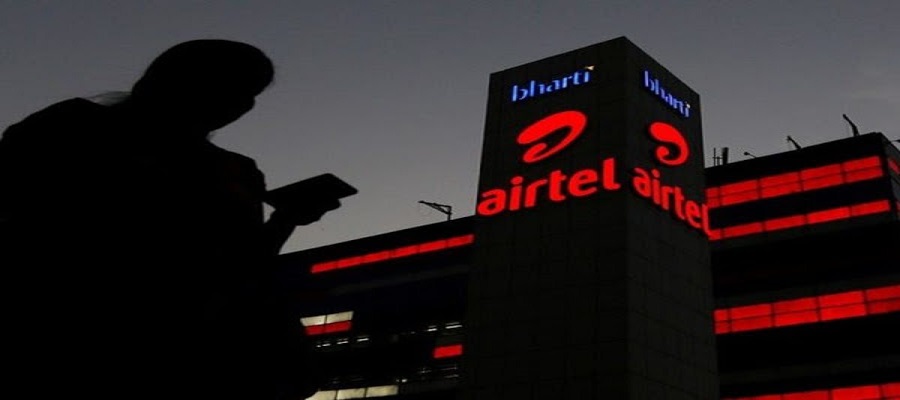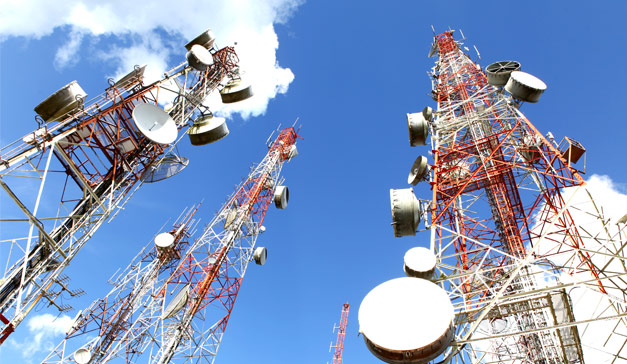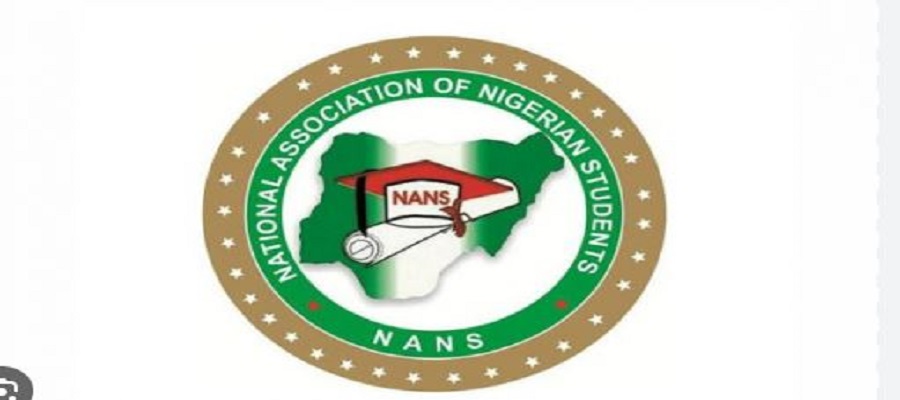Telecom
Nigerians Pay for Calls That Did Not Connect- Lawan

Ahmad Lawan, Senate President, has charged telecommunications service providers in the country to improve their services or leave the country, saying it is wrong for Nigerians to be made to pay for calls which did not connect.

He said that the National Assembly would henceforth be tough on the Nigerian Communications Commission (NCC) to ensure that they carry out their regulatory functions effectively.
Lawan spoke while declaring open a one-day joint public hearing on the incidence of drop calls in the country.
The public hearing, tagged: “The increasing rate of drop calls and other unwholesome practices by Telecommunications Network Operators in Nigeria that have robbed Nigerians of their hard earned billions of Naira” was organized by the Senate Committees on Communication and Trade and Investment, chaired by Senator Oluremi Tinubu (Lagos Central).
The Senate President said that it is wrong for Nigerians to be made to pay for calls which did not connect.
He lamented that all service providers are complicit in the rising cases of drop calls in the country for which they charge Nigerians.
Lawan said: “Whoever will provide better services, I think Nigerians will be better advised to use that service whatever it is.
“And whoever is not, Nigerians should abandon such a service provider. But at the moment all the service providers are involved in this drop calls.
“We pay for drop calls and drop calls are not services provided. For service providers, I am sorry I have to be brash and I have to be blunt, this is cumulative frustration of services not provided by telcos for years.
“The most painful part it is you don’t do it anywhere else. You do it in this country. We suffer. MTN in South Africa don’t do what they do here. Or even in Ghana.
“But in Nigeria, maybe because we are too fatalistic by saying maybe that is what God wishes, meanwhile somebody pockets billions.
“Please, let this be a journey for us in Government representing the people and you, service providers, business institutions or organizations come together and resolve this issue. It is high time.
“I know some of you will say well, we have heard this before, honestly we are going to be tough with the NCC.
“NCC should sit up and do what it is expected to do – to regulate properly because we have oversight function on NCC.
“But you (telcos) you are in business. If you are tired of what is going on I think we will insist on what may appear an uphill task.”
Senator Tinubu in her opening remarks noted that the Nigerian telecoms industry has greatly excelled over the last decade with impressive statistics to show for it.
She how lamented that the achievements in the industry have been greatly hampered by the worsening quality of service by operators.
She lamented that difficulties are often encountered in making telephone calls and “where the call eventually goes through, the caller is either unable to hear the receiver or vice versa.”
She insisted that in spite of a call being unsuccessful, the caller’s account still get charged.
Senator Tinubu said: “The achievements of the industry in the last 18 years are burdened and dwarfed by worsening Quality of Service (QOS) especially noticeable in the increasing rate of drop calls and other unwholesome practices by telecommunications network Operators.
“This and other unsatisfactory consumer experiences have made the issue a cause for concern.
“Difficulties are often encountered in making telephone calls and where the call eventually goes through, the caller is either unable to hear the receiver or vice versa.
“In spite of the call being unsuccessful, the caller’s account still gets charged. In addition, call credit often disappears from the subscribers phones without justifiable explanation.”
She further noted that “it is obvious that while the subscriber base across the networks is growing at a geometric proportion, service providers have not adequately invested in infrastructure in order to stem the tide of drop calls.
“As direct representatives of the Nigerian people, it will be absurd to fold our arms and allow this situation continue unabated.
“Certainly, all involved, starting from the operators, must confront the issue of drop calls owing to its negative impact on National Security and our nation’s economy.
“It is my belief therefore, that it is instructive for both the regulator and operators; and of course all relevant stakeholders, to strive to resolve this challenge of drop calls so as to justify the confidence of subscribers who keep them in business.”
Stakeholders that attended the public hearing included the Minister of Works and Housing, Babatunde Raji Fashola, Executive Vice Chairman of the NCC, Umar Dambata, Federal Competition and Consumer Protection Council, Babatunde Irukera, and the representatives of the Standards Organization of Nigeria (SON), MTN, Airtel, Glo and 9Mobile, among others.
Most of the stakeholders blamed insecurity, vandalism, community antagonism, multiple fiber cuts, double taxation and road construction works for the drop calls sometimes experienced by subscribers.
All the representatives of service providers in their presentation said that drop calls are not usually charged by the networks.
Telecom
Airtel Launches AI Spam Alert in Nigeria

Airtel, one of Africa’s leading telecommunications providers, has launched a groundbreaking Artificial Intelligence (AI)-driven Spam Alert Service in Nigeria, aimed at tackling the growing issues of spam messages and fraud.

Speaking at the launch event held in Lagos, Dinesh Balsingh, Managing Director of Airtel Nigeria, revealed that the innovative service will be rolled out across Airtel’s 14-country footprint.
Notably, Airtel subscribers in Nigeria can access the service at no additional cost.
The AI-powered solution detects and alerts users in real-time about suspected spam SMS, safeguarding them from potential fraud and cyber threats.
Highlighting the company’s commitment to technology-driven customer solutions, Balsingh said, “this is a game changer for the telecoms industry in Africa and as we move forward, we will continue to address customer challenges through proactive tech-driven solutions.”
The service is built on a proprietary dual-layer protection system that analyses over 250 parameters, including sender behavior, SMS frequency, and target location patterns.
Capable of filtering over 1.5 billion messages within two milliseconds, it also features a centralised database of blacklisted URLs to warn users about suspicious links.
“With the launch of this AI-powered Spam Alert Service, Airtel Africa has reaffirmed its commitment to delivering innovative solutions that enhance customer experience, safety, and digital inclusion across the continent.
“As Airtel continues to expand its footprint, it is expected that this pioneering solution will set a new standard for the telecoms industry in Africa.
“Also, as the digital landscape continues to evolve, Airtel Africa remains at the forefront, pushing boundaries and shaping the future of telecommunications in Africa,” said Balsingh.
He emphasised that as Airtel continues to expand, the pioneering solution will set new benchmarks for Africa’s telecom industry.
The initiative has received commendation from key stakeholders, including Dr. Bosun Tijani, minister of Communications, Innovation, and Digital Economy.
Dr. Tijani lauded Airtel’s efforts in boosting Nigeria’s technology ecosystem, particularly through solutions that enhance online security and foster digital inclusion.
Similarly, Dr. Aminu Maida, executive vice chairman of the Nigerian Communications Commission, hailed the service as a major step in addressing the security challenges faced by telecom subscribers.
As the digital landscape evolves, Airtel Africa continues to push the boundaries of innovation, shaping the future of telecommunications across the continent.
Telecom
NCC, ALTON, LASIMRA Engage to Strengthen Telecom Infrastructure in Lagos

The Lagos State Infrastructure Maintenance & Regulatory Agency (LASIMRA) recently embarked on a historic working visit to the Nigerian Communications Commission (NCC) Headquarters in Abuja.

The LASIMRA delegation was led by its Chief Executive Officer, Prince Oyekanmi Elegushi, alongside members of the senior management team.
The delegation was warmly received by the Executive Vice Chairman of the NCC, Dr. Aminu Maida, and the Commission’s management team. The visit marked a significant milestone in strengthening collaboration between LASIMRA and NCC towards improving the telecommunications sector in Lagos State.
The meeting was further enriched by the presence of representatives from the Association of Licensed Telecommunications Operators of Nigeria (ALTON), including the Chairman, Engr. Gbenga Adebayo, and the Publicity Secretary, Mr. Damian Udeh.
Discussions focused on addressing critical issues affecting the industry, with particular emphasis on the security and protection of telecom infrastructure.
LASIMRA reiterated the need for effective oversight and safeguarding of these essential assets under the jurisdiction of the Lagos State Government.
A key highlight of the meeting was the Tower Enumeration Project—a comprehensive audit initiative aimed at identifying all distressing communication infrastructure across Lagos.
LASIMRA also raised concerns about damages to public infrastructure caused by some operators during fibre deployment and reaffirmed its commitment to enforcing appropriate penalties to preserve public assets.
The parties agreed on the importance of a unified strategy involving NCC, LASIMRA and other stakeholders to bring order to the sector, improve connectivity, and ensure widespread access to high-quality telecommunications services across Lagos.
LASIMRA expresses its sincere appreciation to the NCC for its support and collaboration. Together, we remain committed to building a more connected, secure, and digitally inclusive Lagos.
Telecom
NANS Issues Fresh Protest Notice over Telecom Tariff Hike

National Association of Nigerian Students (NANS) has condemned the recent increase in tariffs by telecommunications companies in Nigeria, threatening to embark on a nationwide protest to compel a reversal.

In a statement jointly signed on Thursday in Abuja by Comrade Anzaku Shedrack Ovye, national secretary-general, NANS and Comrade Samson Ajasa Adeyemi, the student body gave the Federal Government and telecommunications companies a 72-hour ultimatum to reverse the tariff increase.
The students warned that upon the expiration of the ultimatum, students across the country would be mobilized for a series of street protests nationwide to ensure a reversal.
They argued that the arbitrary action of telecommunications companies has further exacerbated the financial burden on millions of Nigerians, particularly students and youths, who are among the dominant end-users of their services.
The statement read in part:
“This decision, which has led to a significant rise in the cost of calls, data, and other communication services, is both unjustifiable and insensitive, given the prevailing economic challenges faced by the populace.
“NANS views this development as a blatant disregard for the welfare of Nigerian citizens and an affront to the principles of affordability and accessibility that should govern the telecommunications sector.
“This administration is committed to promoting the welfare of Nigerian students; hence, it will vehemently oppose any tendency that does not align with this vision.
“NANS is deeply concerned about the adverse impact this tariff hike will have on students, many of whom rely heavily on affordable telecommunications services for academic research, virtual learning, and staying connected with their families.
“Therefore, it is worrisome to comprehend the justifications for these increments, as NANS considers this action a direct threat to the security of Nigerian students and an attempt to further impede their ability to navigate their academic endeavors, maintain familial connections, and secure legitimate personal incomes, particularly for independent students responsible for their upkeep.
“We hereby issue a 72-hour ultimatum to telecommunications companies, the Honourable Minister for Innovation, Digital and Blue Economy, Dr. Bosun Tijani, and the Nigerian Communications Commission to reverse this tariff increase and provide a clear roadmap for ensuring affordable telecommunications services for all Nigerians.
“Failure to comply with this ultimatum will leave NANS with no choice but to mobilize students across the nation for a series of peaceful protests to demand justice, accountability, and a comprehensive audit of activities in the telecommunications sector,” NANS stated.
The leadership of NANS maintained that as student representatives, they would not stand idly by while the rights and welfare of Nigerian students, which they have vowed to protect, are trampled upon by greed, “corporate capitalism,” and regulatory complicity.
NANS also called on the Federal Government to intervene promptly and decisively to address this issue.
Additionally, they urged telecommunications companies to prioritize the interests of their customers over profit margins and to engage in meaningful dialogue with stakeholders to find sustainable solutions rather than inflict further hardship on Nigerians who are already struggling economically.
“As the voice of Nigerian students, NANS remains committed to advocating for policies and actions that promote equity, fairness, and the overall well-being of all Nigerians.
“We will continue to hold all parties and duty-bearers accountable to ensure that the rights of students and citizens are protected,” the statement added.

 General News3 days ago
General News3 days agoDaphne Dafinone, CBN GOV’s Ally Facing Alleged N100m Fraud Charges – Police

 E-Business2 days ago
E-Business2 days agoMillions of Nigerians @ Risk as NASIMS Leaks over 23m FG Records

 Telecom3 days ago
Telecom3 days agoLagos Lawyer Sues MTN, Seeks Dissolution of Board

 Telecom3 days ago
Telecom3 days ago9Mobile Dispute: Hayatu, Seltrix Respond to Funtua’s Trusteeship Claims

 News3 days ago
News3 days agoInsurance Operators Tasked on Digital Transformation Business Model

 E-Financial3 days ago
E-Financial3 days agoFlutterwave Gets Ghana Approval to Offer Inward Remittances

 E-Business2 days ago
E-Business2 days agoKaspersky Uncovers Cybercriminals Blackmailing YouTube Creators to Spread Cryptocurrency Mining Malware

 News3 days ago
News3 days agoNELFUND Links Loan Portal to Schools for Easy Verification




















